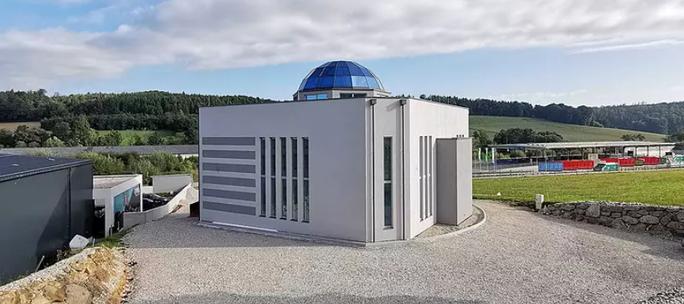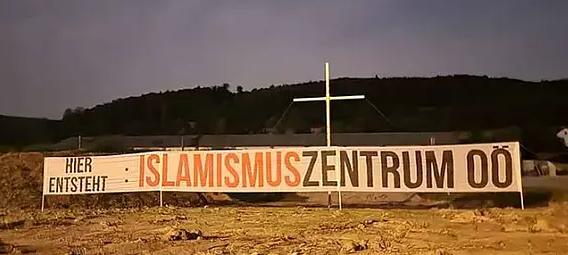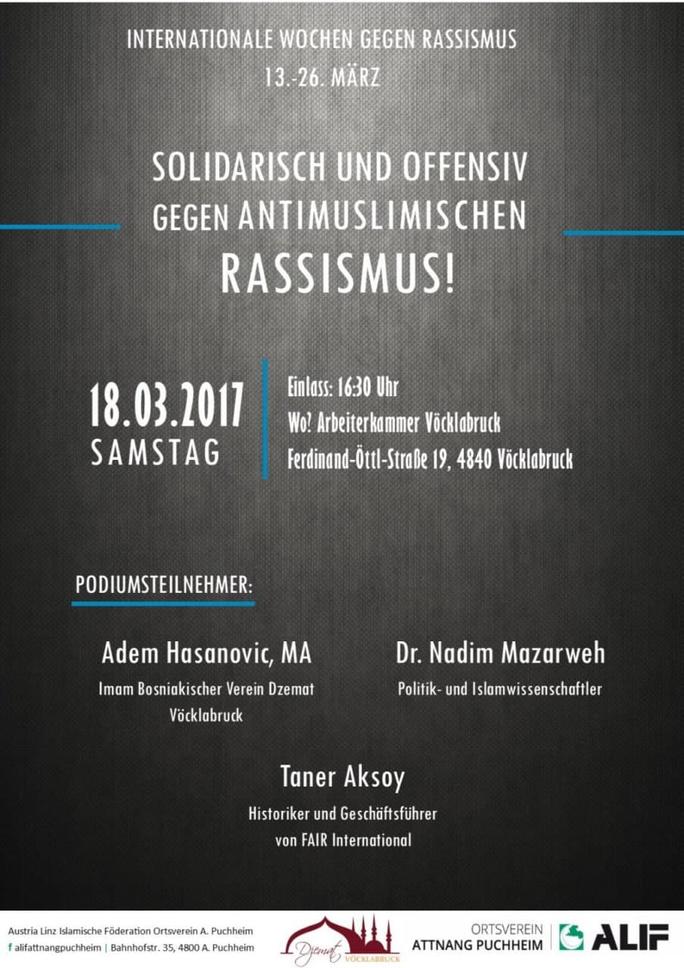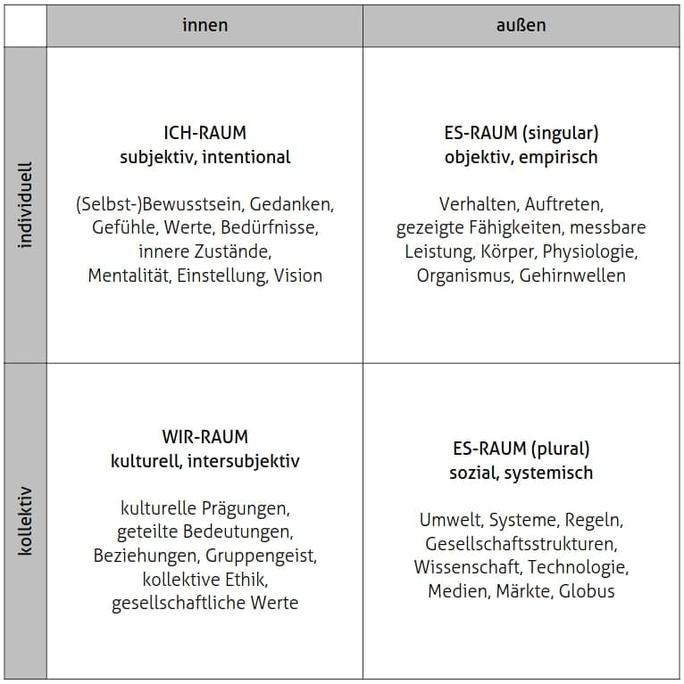Political Islam Austria:
Original German OÖN G.Egger Translated by Deepl.com
Muslim Association defends itself against accusations of Islamism.

Bild: Egger OÖN https://www.nachrichten.at/;art71,3900021
VÖCKLABRUCK Austria. The Bosniak-Austrian cultural association [1]
created a center on the outskirts of Vöcklabruck. Accusations of Islamism brought its opponents to court - and many worries.
A local inspection From the outside, it resembles a space station. With its large blue glass roof dome and narrow long windows, the cuboid looks out of date. Too modern, at least here, where waste collection centers and car dealers are lined up next to each other. In the east of Vöcklabruck, the Bosniak-Austrian cultural asociation has created its own center. It is called "Dzemat" in Bosnian; in German you would say "Gemeinde". If you want to enter, you have to take off your shoes and put them on the shelf next to the door. The prayer room, where a school class is about to leave, is carpeted in turquoise-blue. The staircase leading upstairs is reserved for women.
You can, but don't have to, pray on the upper floor, which was built like an open balcony above the ground floor. Everyone can do as they please, says Alen Rustic in the Upper Austrian dialect. Rustic, a man just under two meters tall, has lived here for more than 30 years. He fled when the war was raging in Yugoslavia. He speaks thoughtfully, formulates his sentences in a friendly but
consistent manner. And his name is actually different. The chairman of the cultural association does not want to read his real name in the newspaper. "I don't want to deal with it in my private life," he says. Rustic takes a seat at a small table in the center's office, with Dragan Muslic, his deputy, at his side. He also goes by a different name and doesn't want to speak under his real name. Out of concern for himself and his family.
"Radical things are not welcome here. Everyone who knows us personally knows that. Everyone who has ever been here knows that. I know where it all comes from, but I just don't understand it.
We grew up here, Austria is our home, our children speak German with each other. You flee from war and this is what awaits you," says Muslic.

Bild: ZVG www.krone.at/2491576
"Something like this", in this case an eight-meter-high wooden cross and a 17-meter-long banner with the inscription: "Hier entsteht: Islamism Center Upper Austria." Placed directly in front of the Bosniak community's new retreat in a night-and-fog operation by five Men between the ages of 19 and 51.
An acquittal as carte blanche Back then, on the night of 21 to 22 August 2021, the center was still a construction site. "My brother drove home from the night shift in Lenzing and asked me if we were advertising. I didn't know what he was talking about. Then I drove here at seven o'clock in the morning and saw the cross and the banner. It changed your mind," says Rustic. The club captains say that they would never have made the incident public on their own initiative. "Because then these people would have had exactly what they wanted," says Rustic. But the pictures were already online on the relevant platforms. The Identitarians used them to advertise, right-wing platforms saw themselves as part of the "resistance".
Although the perpetrators were charged with incitement to hatred, they were acquitted a few weeks ago at the regional court in Wels. "If this sends out a signal that something like this will go
unpunished, I don't know what will happen next. Where is the end of it all? It doesn't seem like an acquittal, but more like a carte blanche," says Rustic.
This has all been going on for far too long for the association. In 2009, when they acquired a former department store in Vöcklabruck's Unterstadtgries district and built a center including a house of
prayerwanted to set up, it began. A small number of residents took to the barricades, collected signatures and protested. There were "vigils" on the doorstep. Led by the "Citizens' Initiative for Civil Courage", which quickly mutated into a one-man show. "We communicated clearly with the municipality right from the start, revealing our cards that we are an association house for Bosniak
Muslims," says Rustic. When the provincial administrative court prohibited the use of a storage room as a prayer room, the association moved into the sales room. But even there it was soon over.
"We were then virtually homeless, we met for Friday prayers in various facilities, even the Franciscans gave us a room. We are well integrated in Vöcklabruck, everyone knows that. Except for a few," says Muslic.
The new retreat, "an opportunity to create something that reminds us of our old home", as Rustic says, was created in the east of the city - and was once again accompanied by protests. "The Identitarians distributed flyers in the town square and warned people about us. They knew everything about me, even private things, they were concerned with our lives. On their pages, we
were Islamists, Salafists, jihadists. We became hate figures. And yes, you just feel hated, nothing else," says the chairman.
"Islamist tendencies?"
Berlin-based Islamic scholar Guido Steinberg, who was commissioned by the Wels regional court, also came to the conclusion in an expert opinion that there were no convincing indications of
jihadist or Salafist tendencies at the cultural center. However, he writes of "some indications of Islamist tendencies". "It would have been good if someone had confronted us with this," says Rustic. The Office for the Protection of the Constitution was here, but asked questions that the chairman would classify as "strange". "We were asked whether Alija Izetbegovic was with us. That was the first president of Bosnia. But he died 20 years ago. We only remembered him on Facebook," he says.
In his report, Steinberg sees a visit by Sulejman Colakovic, who is said to have Islamist leanings, as an "indication" of such tendencies in Vöcklabruck. "Yes, this man was with us. When he was 17 and a student and not since then. We could have made that clear if we had been asked," says Muslic.
Sefic Kurdic, who is considered a sympathizer of the Muslim Brotherhood (Islamist movement in the Middle East), was also in Vöcklabruck. "In 2015. His quotes were deliberately taken out of context in Exxpress, the medium quoted in this report."
The "Dzemat"[1] is nothing more than a social meeting place. "Muslims can pray here five times a day. It just looks different to the church. But we're not a backyard or a basement, we're open to everyone," he says. The aim is to make this clear in the future with an extension: Youth rooms and a cafeteria are to be built.
Original: www.nachrichten.at/oberoesterreich/salzkammergut/du-fuehlst-dich-nur-gehasst;art71,3900021
“We can not solve our problems with the same level of thinking that created them” ― Albert Einstein
Gentle Replik see: https://unser-mitteleuropa.net/2024/02/07/politischer-islam-und-demokratieverstaendnis-ein-beispiel-aus-oesterreich/
Endnoten:
[1] Bosnic Muslime by „Dzemat“ Austria
Rijaset: „Bosniakische Kultusgemeinde der islamischen Glaubensgemeinde Österreich“
THE ISLAMIC COMMUNITY IN BOSNIA AND HERZEGOVINA
OFFICE OF RAISU-L-ULAMA
Address: Kovači br. 36, 71000 Sarajevo, Bosna i Hercegovina
Tel: +387 33 289 700
Web: www.islamskazajednica.ba oder www.rijaset.ba
Email: kancelarija@rijaset.ba
PS: Erste Konflikte im Außen mit Prinzipien der Demokratie:
Als "Rassismus" erscheint als umgeleitete Konfliktaustragung?

ALIF Dzemat vb
Nach Ken Wilber, Erscheinungen in 4 Quadranten: (außen - kollektiv)

Ken Wilber
Zu tiefgründigen Debatten bezüglich Identität:
Die drei Daseinsmerkmale - Den Geist beruhigen
"Radikaler Universalismus" nennt sich ein Buch, interessant!
